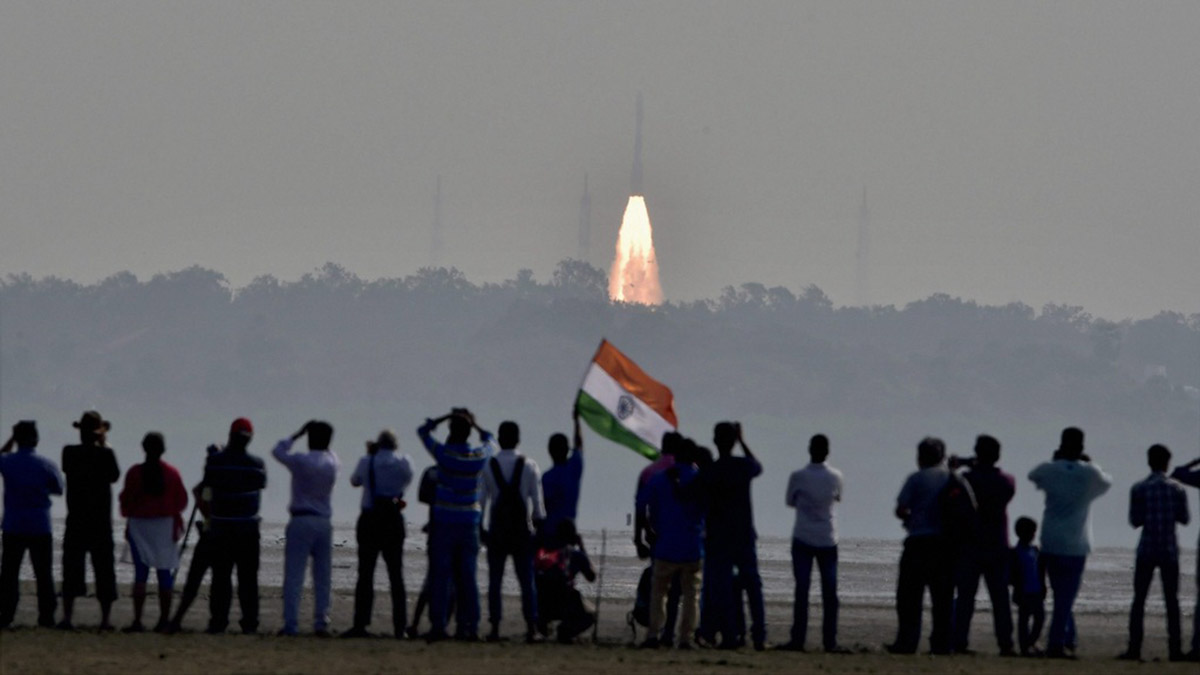The Government of India amended the FDI policy for the space sector on 5 March 2024. This has liberalised thresholds for various space-related activities.
This change comes on the heels of a slew of space reforms by the government that began in 2020. The reforms created a fertile ground for the cropping up of many space start-ups in the country but did not address their funding needs. While the FDI reforms have the potential to address this deficiency, they are insufficient in a vacuum. India’s share of the global space economy is $8 billion, and the government aims for a five-fold increase by 2040. To achieve this, the government will have to place larger bets.
India’s space industry
Until the early years of the 21st century, government agencies dominated the space sector. Technological advances and changing policies have since created scope for private players in the business of outer space. In the last five years, the Indian government has taken several steps to increase private industry participation in space. As of the beginning of this year, India had 204 space start-ups.
Funding the space activities
The start-ups are spread across upstream and downstream activities. The upstream activities include building and operating various space assets. These include launch vehicles, satellites and spaceports. These activities take time and have a risk of failure. They require large and patient capital investments.
The downstream activities of space use the information obtained from the upstream activities in various applications. The applications are many. They range from Earth Observation for agriculture and urban planning to Positioning and Navigation applications for drone guidance. The downstream applications are less risky. Also, they don’t take too much time or investment. However, downstream operations depend on the growth and development of the upstream sector. As a result, investments to develop space assets are critical.
As the space start-up ecosystem in India continues to develop, a key challenge emerging companies will face is getting the funding they need, particularly for the upstream activities. Local venture capitalist firms will likely only invest in downstream activities because of the quicker returns, larger market size and lower regulation. This is precisely what the FDI reform seeks to address. By opening up the space sector to foreign investors, the Indian industry will potentially have better access to funding.
Impact Shorts
More ShortsThe new FDI policy presents an opportunity to draw investments to develop space assets and infrastructure. It can also decentralise investment decisions and positively impact start-ups and large corporations alike — directly in the upstream and indirectly in the downstream areas. Furthermore, it sends a positive signal to the world — that India is a favourable destination for space undertakings.
Role of the government
While the FDI reforms help create a better policy environment, the Indian industry must still compete globally to attract investments. To achieve this, the government must help build capabilities through technology transfers. It must also create demand to which the private space sector can respond.
The National Aeronautics and Space Administration (NASA) of the United States of America has been doing this for a few years now. For example, NASA engages with private American companies to land equipment on the Moon as part of its Commercial Lunar Payload Services (CLPS) programme. In 2020, Intuitive Machines was awarded a $118 million contract under CLPS to land payloads on the Moon. The IM-01 Odysseus, built by Intuitive Machines, became the first private company craft to land on the Moon in 2024. This was the first American craft to do so since 1972. It’s worth noting that the last three non-governmental Moon landings have failed, which further highlights the risk involved and the need for government support.
The Indian government can sign long-term purchase agreements with the Indian industry. This will create a consistent and assured demand for space-based services in the Indian market. This demand will spur competition within the private industry. It will enable private research and development and add to Indian capabilities in space.
The writer, a Research Analyst at the Takshashila Institution, undertakes research on space economy. Views expressed in the above piece are personal and solely those of the author. They do not necessarily reflect Firstpost_’s views._


)

)
)
)
)
)
)
)
)



